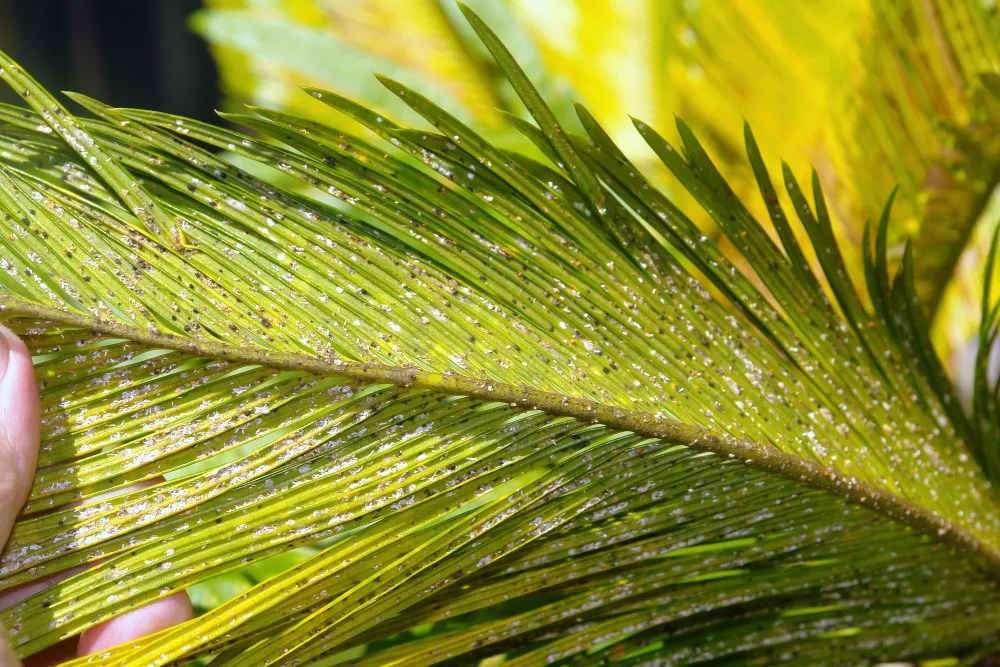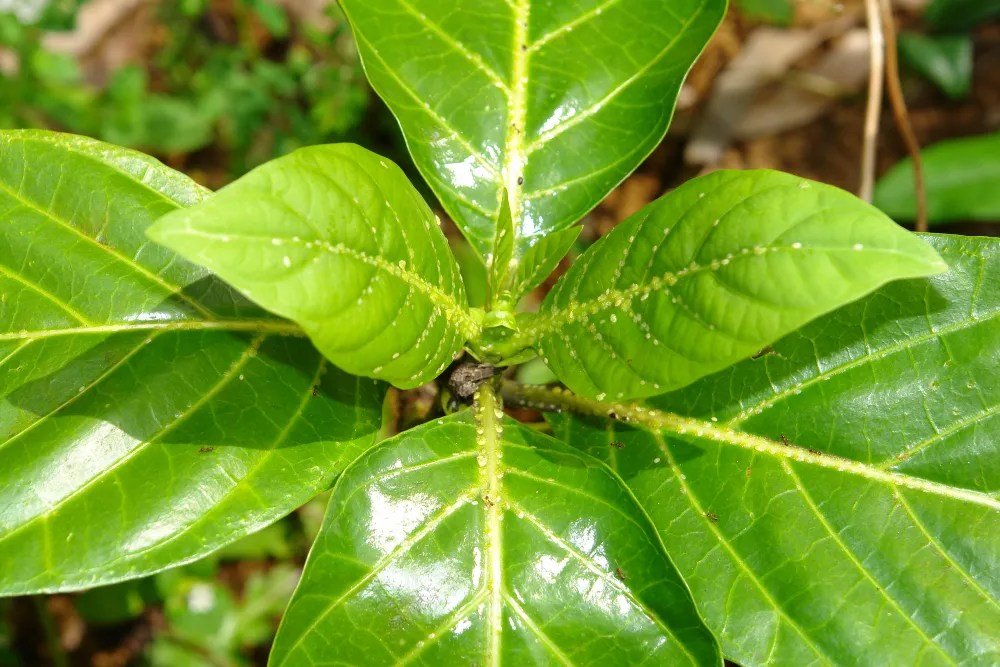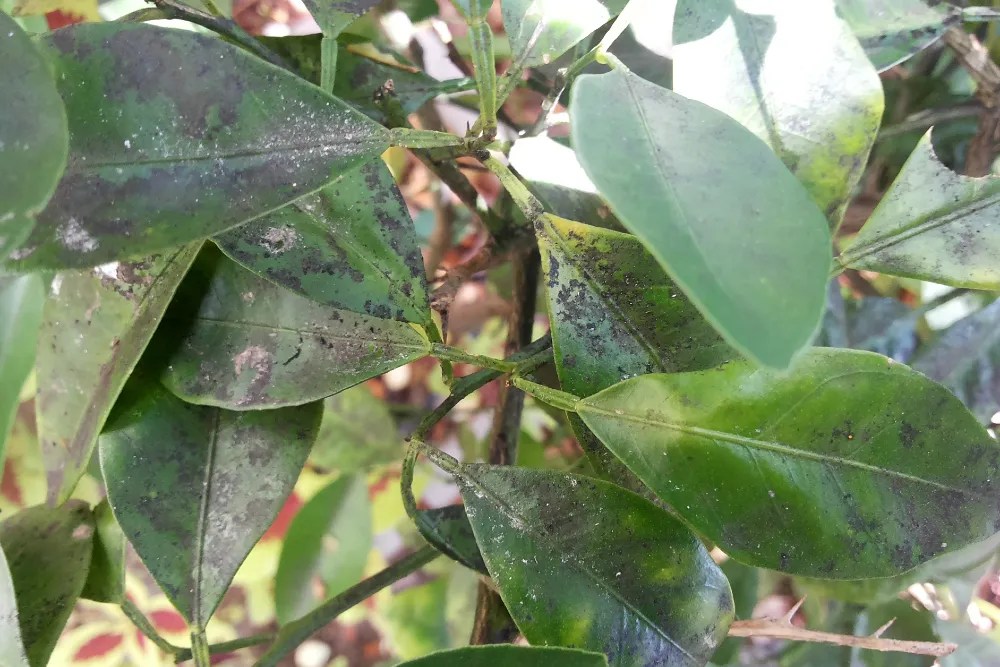Related
If you notice round bumps and a shiny , sticky fluid on the stems and leaf of your houseplant , it in all likelihood has scale leaf insects . surmount aretiny peststhat often go unnoticed until they reproduce in prominent quantity .
So , what to do if your houseplant gets weighing machine insects ? Do n’t worry – this guide gives you a step - by - step process for eliminating scaleinsects on houseplants .
Things You’ll Need to Get Rid of Scale Insects
Image Credits : Scot Nelson via Flickr
Here ’s what you might need to machinate for your battle against scale :
How to Get Rid of Scale Insects on Houseplants
Scale worm ’s lifecycle start up as an egg , grow to a crawler , and eventually , a full adult . Crawlers are very pocket-size , like dust , and move from one part of the industrial plant to another in orderliness to wipe out . After a few days , they settle down for good , lose their legs , and start feeding on the plant sap . Not only do they get a meal , but this is when they develop protective shells .
loosely , when dealing with a scale of measurement plague it ’s easier to free of them in their crawling stage . But there are also way to withdraw the adult scales from the flora . Here ’s a step - by - footfall guide on how to place , remove , and foreclose scale insects on your houseplants .
Step 1: Check Your Plant Thoroughly
first off , assure whether your plant has scale insect or something else . Mealybugs also look like ordered series and have waxy fibril . Aphids also secrete a tumid amount of sticky fluid which can go to fateful sooty modeling .
There are two common types of scale of measurement insects : armoured and soft . you may control both these pests using the same methods however , there are some differences in how these plate see .
Soft Scales
To describe soft scale , look for round , ellipse , like miniature tortoise shells , about 1/8 to 1/4 inch long . The unfledged scale are gentle in colouration and become dark as they age . delicate shell have hard protective shells and semicircular profile in the adult stage . Unlike the armoured musical scale , their shell do not abstract off their bodies when poke with a sharp knife .
They also secrete honeydew which attract ant , bee , and flies and gives upgrade to sooty mould . Other signs of subdued scales are yellowing leave-taking , strain foliage at the growing backsheesh , twig dieback , and defoliation .
Armored Scales
armoured scales are about 1/6 to 1/8 inch long , round , and elliptical , but are not bumpy . Unlike their soft counterparts , armored scaled do n’t produce a sticky sap but , they do pack viruses that can eventually become harmful to your plant .
These pests infest tree and shrubs , causing the leaf cell to die and a yellow or brown halo .
Step 2: Separate and Clean
range Credits : Pavel Danilyuk via Pexels
The next whole step you need to take once you identify scale insects on your houseplant is quarantine ! Immediately remove your infected plant from your collection and insulate it in a different room . Then , using mild Georgia home boy and weewee , clean the area where your plant occupy ( the table , floor , or windowsill ) to avoid any scale worm moving to other plants .
After that , give a quick rinse to your plant under the shower or dip and remove any smutty mold from the leaves and stems . you could also expend lukewarm pee on a cotton inking pad towipe down the plant . Then , use a toothbrush , cotton swab , or your fingernail to remove the adult scales from your flora by hand . If you respect some share of the industrial plant are severely infected , pruning is also an option .

Note : Remember to clean the underside of the leaf , as ordered series insects often junket there . Check all aerofoil of your fleeceable protagonist !
Step 3: Use Worm-Casting Tea
simulacrum recognition : Protopian Pickle Jar via Flickr
Studies show that louse casting ( insect excretory product ) admit a born substance , chitinase , that degrade the protective kayoed cover of some houseplant pestilence causing them to die . So , why not prepare aworm - casting teato remove the refractory scale of measurement from your houseplant .
Worm cast are ordinary manure you’re able to purchase from your local garden center or order online . you’re able to also organise worm hurl in your garden with vermicomposting .

To devise the worm - cat tea , soak 1/2 cup of worm casting in 4 cups of water overnight . Strain this mixture in the sunup using a coffee filter or a strain cloth . Next , pass over down your whole plant using this insect - casting tea . lastly , dunk a cotton pad of paper in the liquidness and take out all the visible scale insects from your houseplant .
Step 4: Control the Crawlers With Pesticides
Once you have cleaned your affect houseplant exhaustively with pee and worm - casting tea , you require to watch out for further scale leaf plague on the plant for at least a month . The paint is to interrupt the lifecycle of these houseplant pests and ensure that they are no longer distribute .
Now , you need toprepare your own pesticidesprays to kill the crawlers , and you may do that in two way .
When using the homemade sprayer , secure that the whole plant is evenly get over with the answer . You may spray some on the grime but never soak the soil with the liquid . Once you wind up , just let the plant dry out itself .

Insecticidal soaps or higher-ranking horticultural oil sprays will also belt down the crawlers . But you need to follow the recording label management to avoid damage the plant life . You might also need to clean the area around the plant after spraying oil .
Note : Avoid using cold water system on your plants . Instead , use lukewarm water to avoid shock .
Step 5: Prevent Scale Insects
You should follow this precautional step whether you have scale or have never come across the problem . scrutinise your plants on a regular basis for any houseplant pests so that you could watch the job too soon .
Whenever youbring a new flora into the house , ensure you keep it away from other houseplants for at least two weeks . This will help you control issues you may have unwittingly play home from the glasshouse . Take the extra care and pass over unexampled plants with water supply and spray it with louse - casting tea before bringing it inside . The same goes for the plants that youoverwinter indoors .
In oecumenical , it is good to spray your flora with worm - casting Camellia sinensis every two week to prevent any scale dirt ball from flourishing .

Goodbye Scale Insects!
One of the good ways to deal with houseplant blighter like scales is to use worm - barf tea . Keep an eye on your plants andinspect themevery two to three weeks for any possible signs of scale worm . Lastly , postdate the measures to prevent scale from entering your sign of the zodiac and touch your wanted houseplants . If your plants still get them , you now love what to do .





